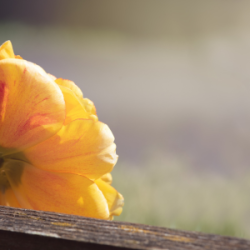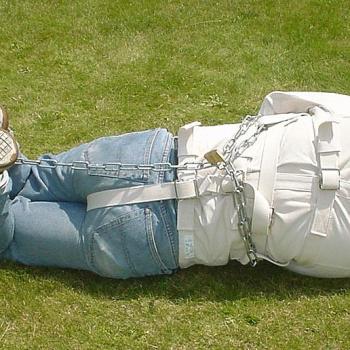Are Western universities partly to blame for the decline of belief in God? So alleged conservative talk show host Dennis Prager in his recent essay, "Why God Isn't Doing Well."
As a person who works in higher education, I latch onto any discussion about the ills afflicting the modern university. It's not wrong for Prager to say that universities lean leftward, but it's also not clear—certainly not to me—that this is a regrettable state of affairs. Universities should certainly be more honest about their predilections. But the true problem with the modern western university—and a more direct contributor to diminishing interest in things divine—is not its political leanings but its rampant drinking culture.
I once assigned my students to identify themselves with a particular label and then list some attributes every member of that classification must possess. I expected groupings like race, religion, class, and politics, but most of the papers spoke of being an athlete or being unclassifiable. One particular classification, however, pleasantly surprised me. One student wrote about what it's like to be a young adult and 21st century college student.
Much of what he described is universally recognizable: the tension of standing between childhood and adulthood, the pressure to be successful, and a consuming curiosity about sex. I even found resonance in his account of the distractions that often stand in the way of "growing up." I was a college student myself, after all, less than a decade ago. I had to choose between video games and homework, late night discussions and sleep. So perhaps I shouldn't have been surprised when the student wrote about the distractions and diversions of the full college experience: spending time with the opposite sex and getting drunk with them.
Wait. I thought we were talking about video games.
The more I considered it, however, the more I recalled similar instances from my years of teaching—a rash of drunk-driving accidents that rocked a campus, and a steady stream of alcohol-addled students who failed out or left college for rehab. Scholarships were lost. Dreams were shattered. A professor friend told me recently about a student who had missed several classes and returned with a note—not from his doctor, but his jailer.
At this point, you're thinking that I'm naïve. And you're right.
My college education took place in the placid shelter of a Christian campus. The rules that felt like unreasonable restraints—limited visitation hours for coeds, no smoking or drinking on campus, with strict repercussions for drunkenness—undoubtedly staved off the kind of partying I am hearing about more and more. Those rules seemed harsh at the time. They made us feel untrusted. And doubtless some student is writing an editorial right now protesting the "rigid legalism" of the rules at his or her Christian college. But perhaps those rules were there for entirely good reasons.
The most realistic assessment of life on a Christian college I ever heard came from an upperclassman who showed me around campus when I was a senior in high school. Although the rules keep drinking and drug use out of the public eye, he said, a student could find whatever he was looking for beneath the surface. And indeed I eventually did, but not until I was of legal drinking age and mere months from graduating. Then, and for several months after I graduated, I lived a condensed and accelerated version of what many students experience over the whole of their college careers. But at that point, with college behind me and my degree framed and hanging on the wall at my parents' house, it was more the cutting loose of The Graduate than the aggressive partying of Animal House.
I was more fortunate than most. Recently, I was reunited with high school friends whom I had not seen since graduation. We all had gone to different colleges, and had lived very different lives. Our reunion was occasioned by the tragic death of a friend who had discovered heavy drinking and hard drugs after high school and had never fully recovered. The others had made better decisions eventually, but not until after losing scholarships, taking time off from college, and finally finishing, upwards of six years after they had started.
They did not express regret for their partying. They regretted having gone to college in the first place. One lamented that he would never use his major. Another wished he had learned a trade instead.
In response to Prager, Conor Friedersdorf wrote in The Atlantic that the reason college students lose their faith has little to do with the liberal university and much more to do with the simple fact that students leave home. I agree with Friedersdorf. Leaving home, he explains, separates the young person from external pressures to be religious. But, I would add, it also exposes students to new pressures, including the pressures to experiment with alcohol and drugs.





